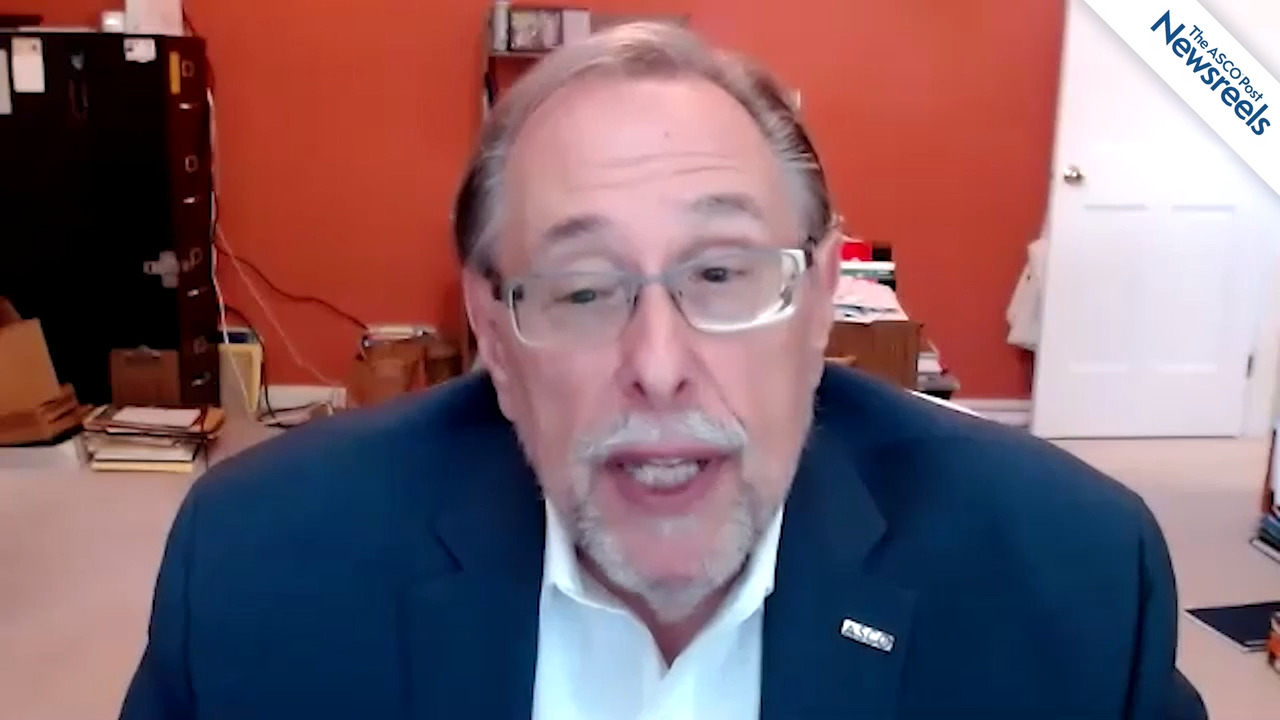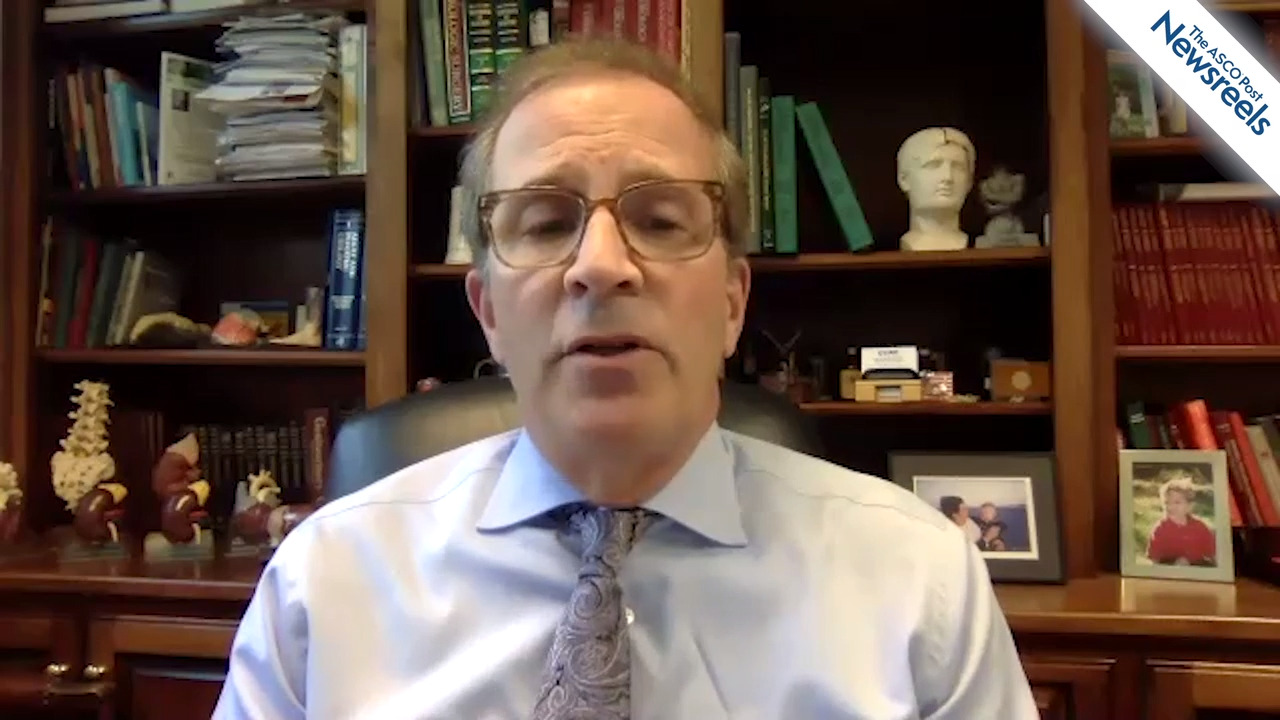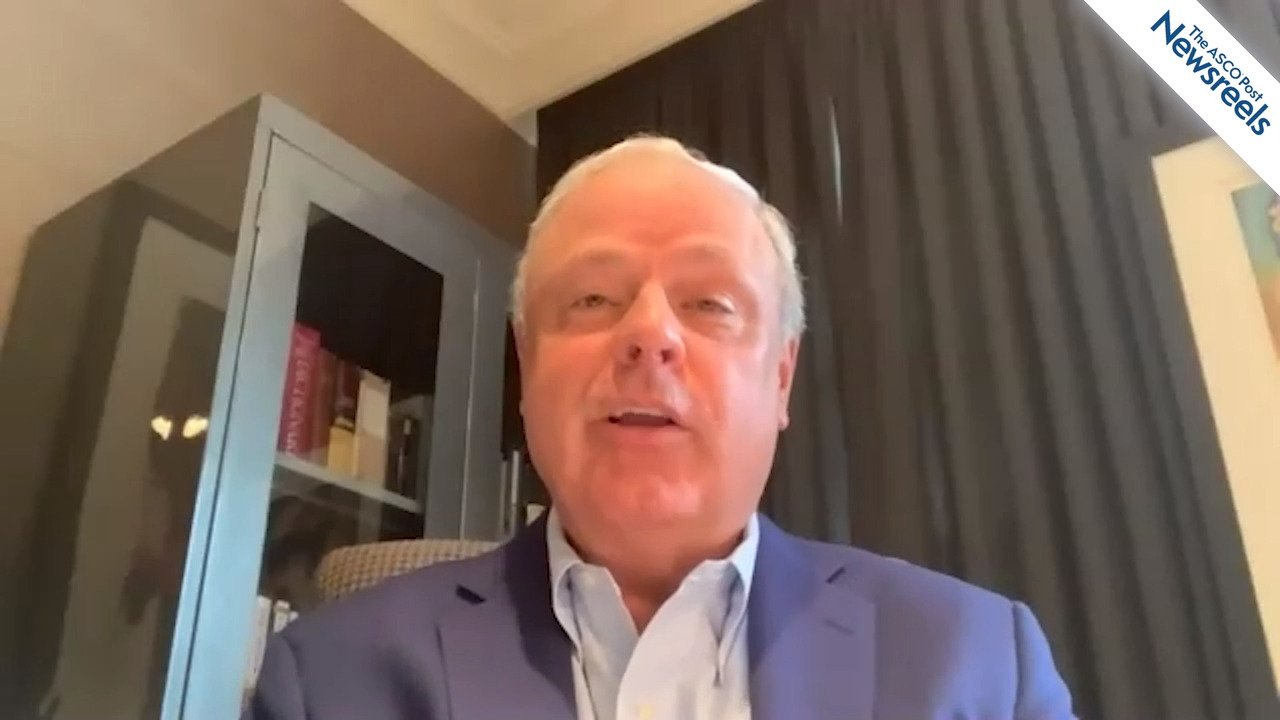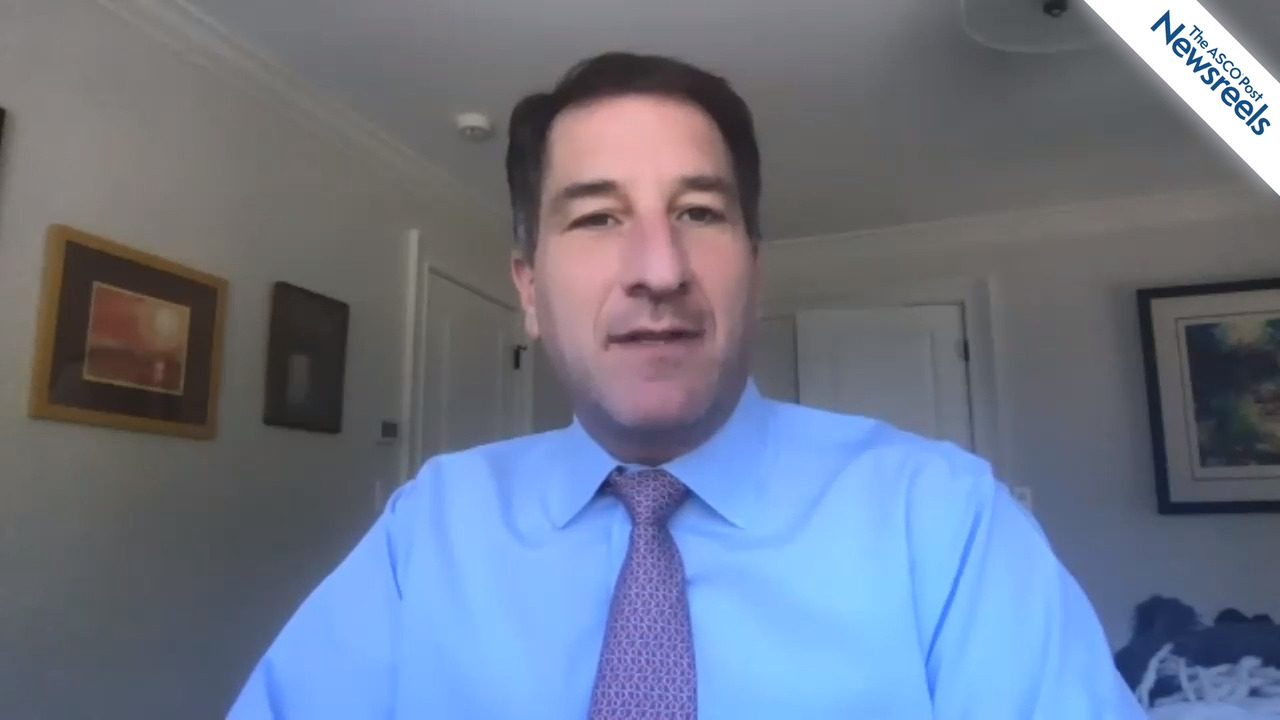Michael J. Morris, MD, on Prostate Cancer: Impact of PSMA-Targeted Imaging on Clinical Management
ASCO20 Virtual Scientific Program
Michael J. Morris, MD, of Memorial Sloan Kettering Cancer Center, discusses phase III data from the CONDOR trial, which showed that PSMA-targeted PET scans detected and localized occult disease in most men with biochemically recurrent prostate cancer presenting with negative or equivocal conventional imaging findings (Abstract 5501).
The ASCO Post Staff
Richard L. Schilsky, MD, Chief Medical Officer of ASCO, talks about some of the most important and practice-changing findings presented this year at the ASCO20 Virtual Scientific Program, including the use of targeted and immunotherapies in earlier lines of therapy, where they have made a significant impact.
The ASCO Post Staff
Neal D. Shore, MD, of the Carolina Urologic Research Center, discusses phase III results of the HERO study, which showed relugolix achieved castration as early as day 4 and was superior to leuprolide in sustained testosterone suppression, testosterone recovery after discontinuation, and reduction in cardiovascular side effects (Abstract 5602).
The ASCO Post Staff
Howard A. Burris III, MD, FACP, FASCO, President of ASCO, talks about what to expect from this year’s ASCO20 Virtual Scientific Program and its many offerings.
The ASCO Post Staff
Christopher Sweeney, MBBS, of Dana-Farber Cancer Institute, talks with Thomas Powles, MD, PhD, of Queen Mary University of London, about the first study to demonstrate a survival advantage with avelumab for metastatic urothelial cancer. In the trial, avelumab improved median overall survival by 21.4 months compared with 14.3 months with best supportive care (Abstract LBA1).
The ASCO Post Staff
Jeffrey A. Meyerhardt, MD, MPH, of Dana-Farber Cancer Institute, discusses results from the CALGB/SWOG 80702 trial of celecoxib plus standard adjuvant therapy with fluorouracil, leucovorin, and oxaliplatin (FOLFOX). Adding celecoxib to standard chemotherapy did not significantly improve disease-free or overall survival (Abstract 4003).





